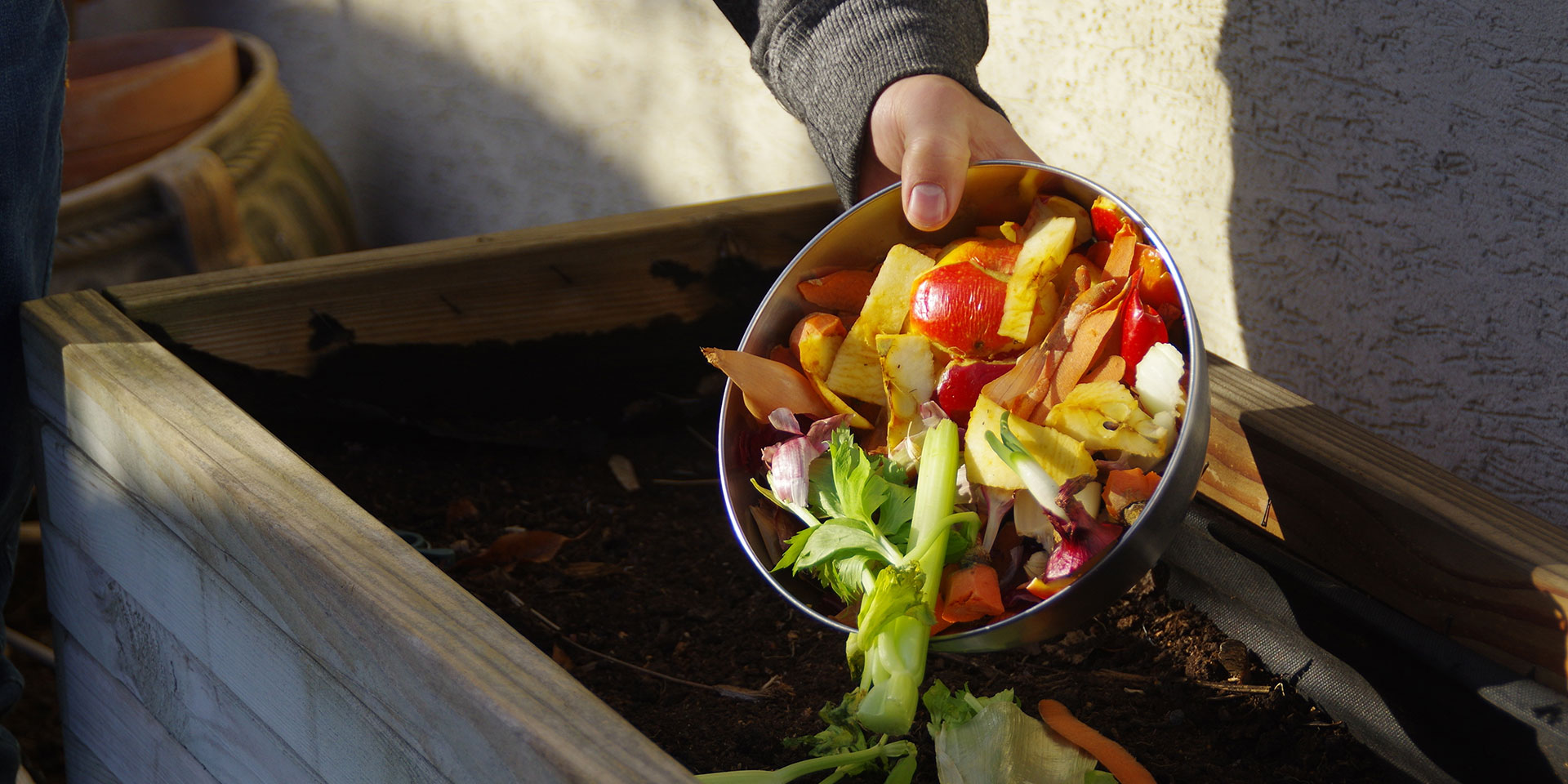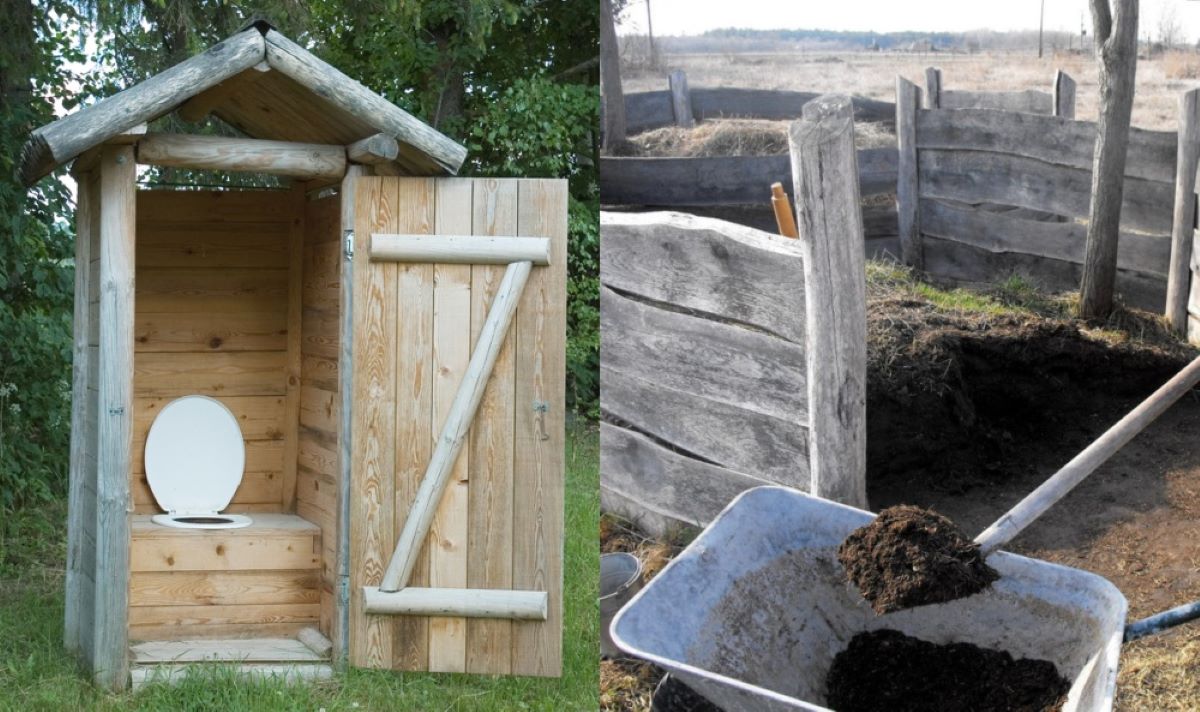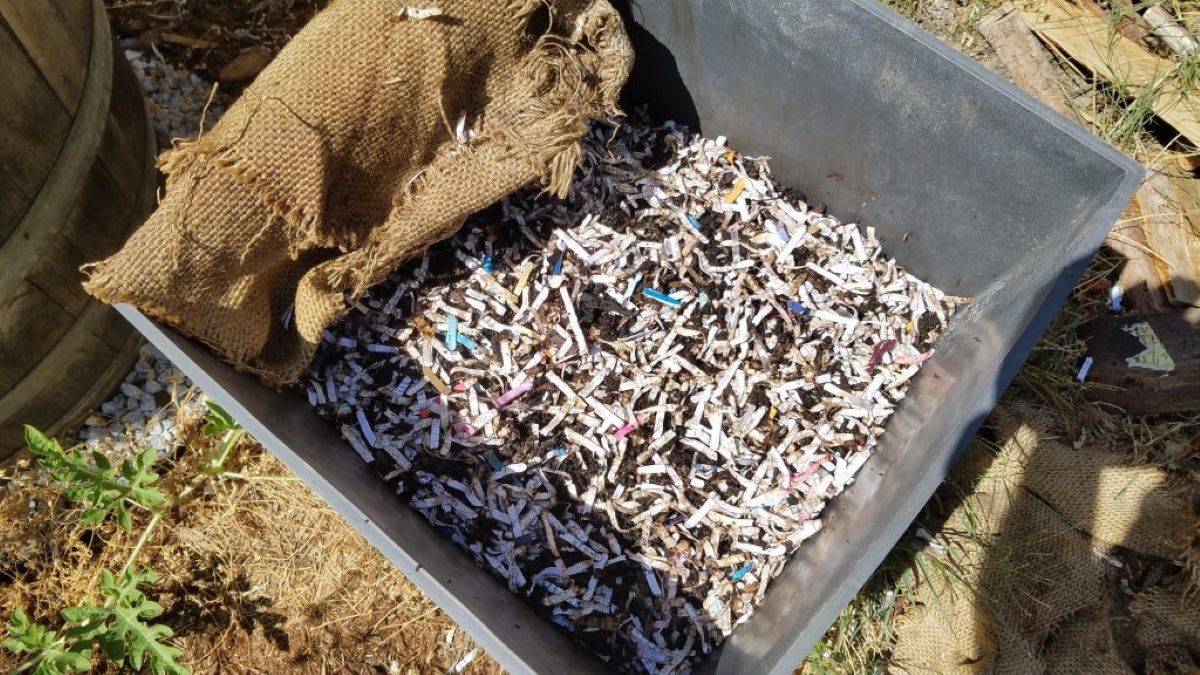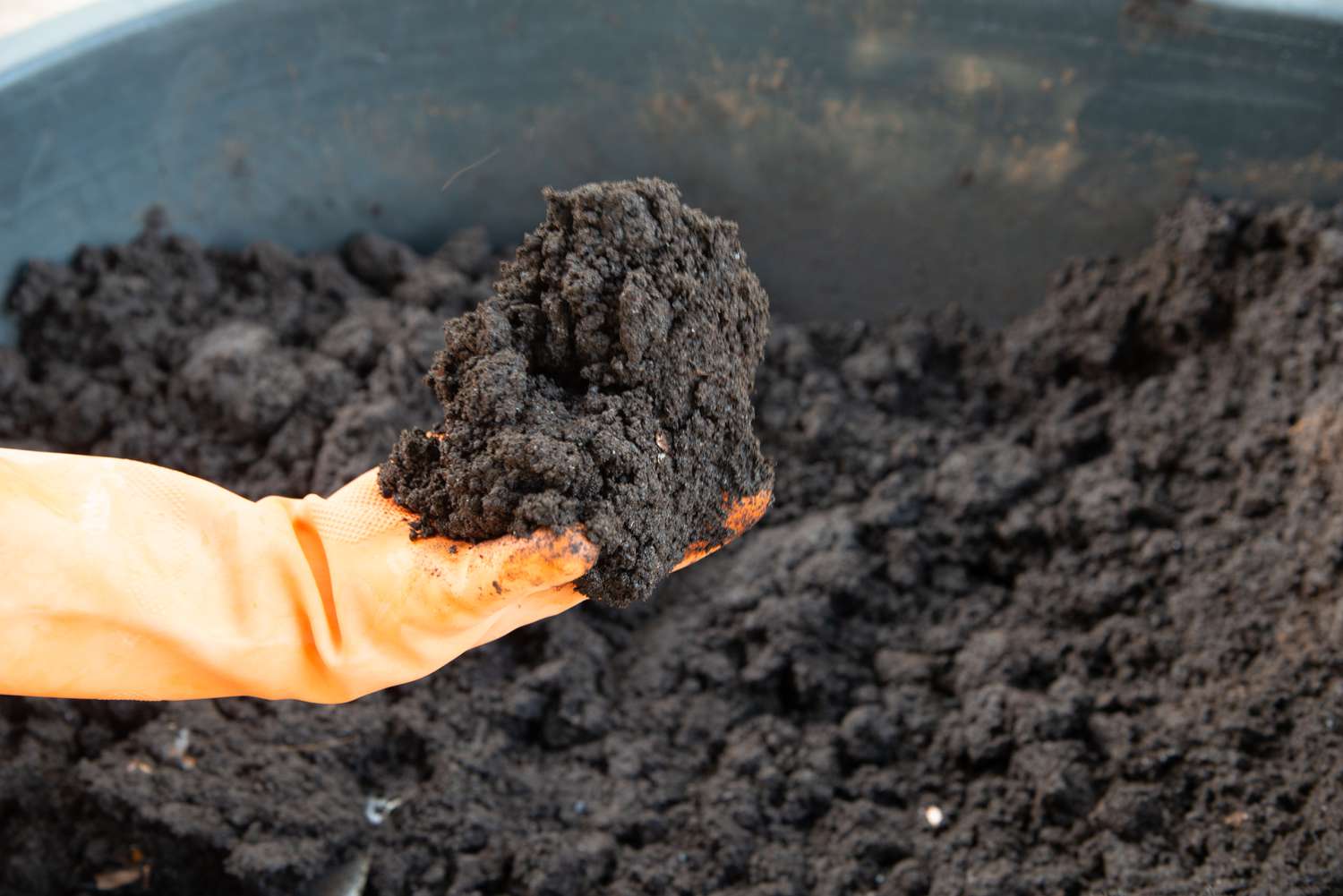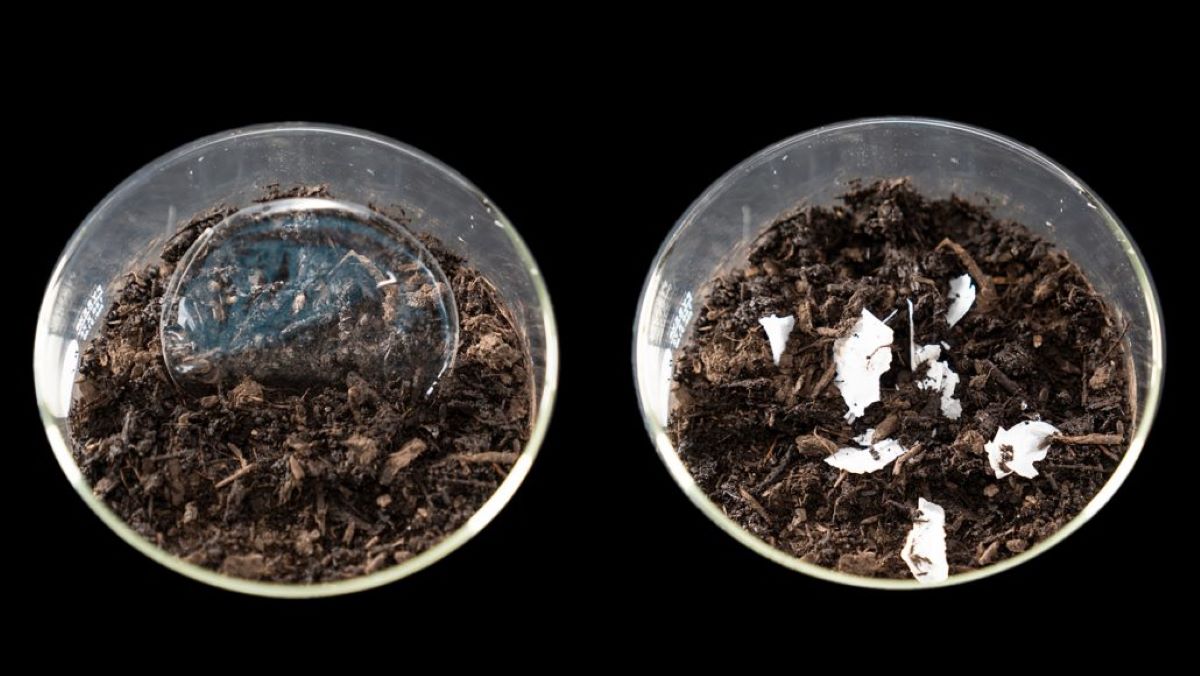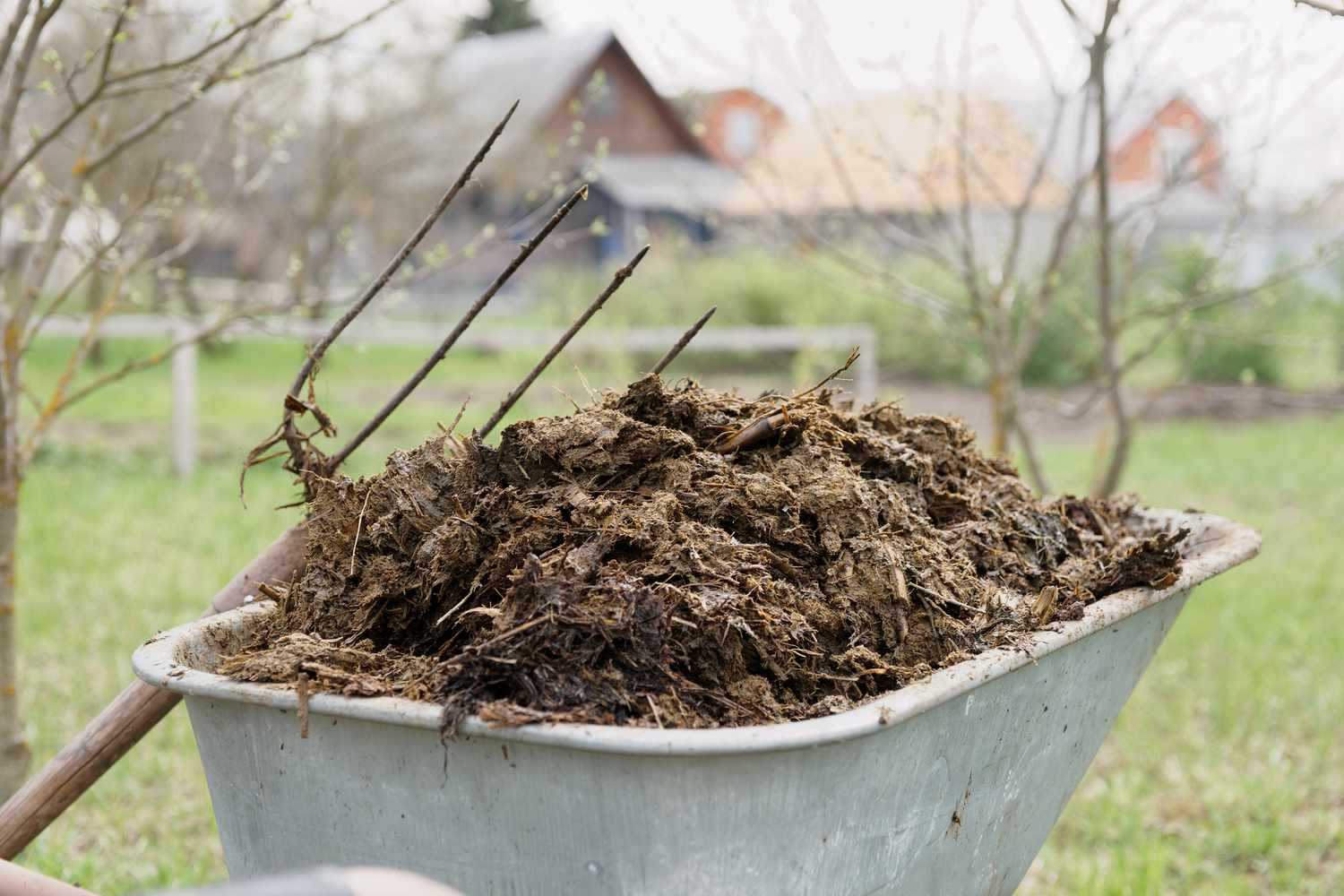Home>Gardening Tips and Tricks>Eco-Friendly Gardening>How Long To Compost Cow Manure
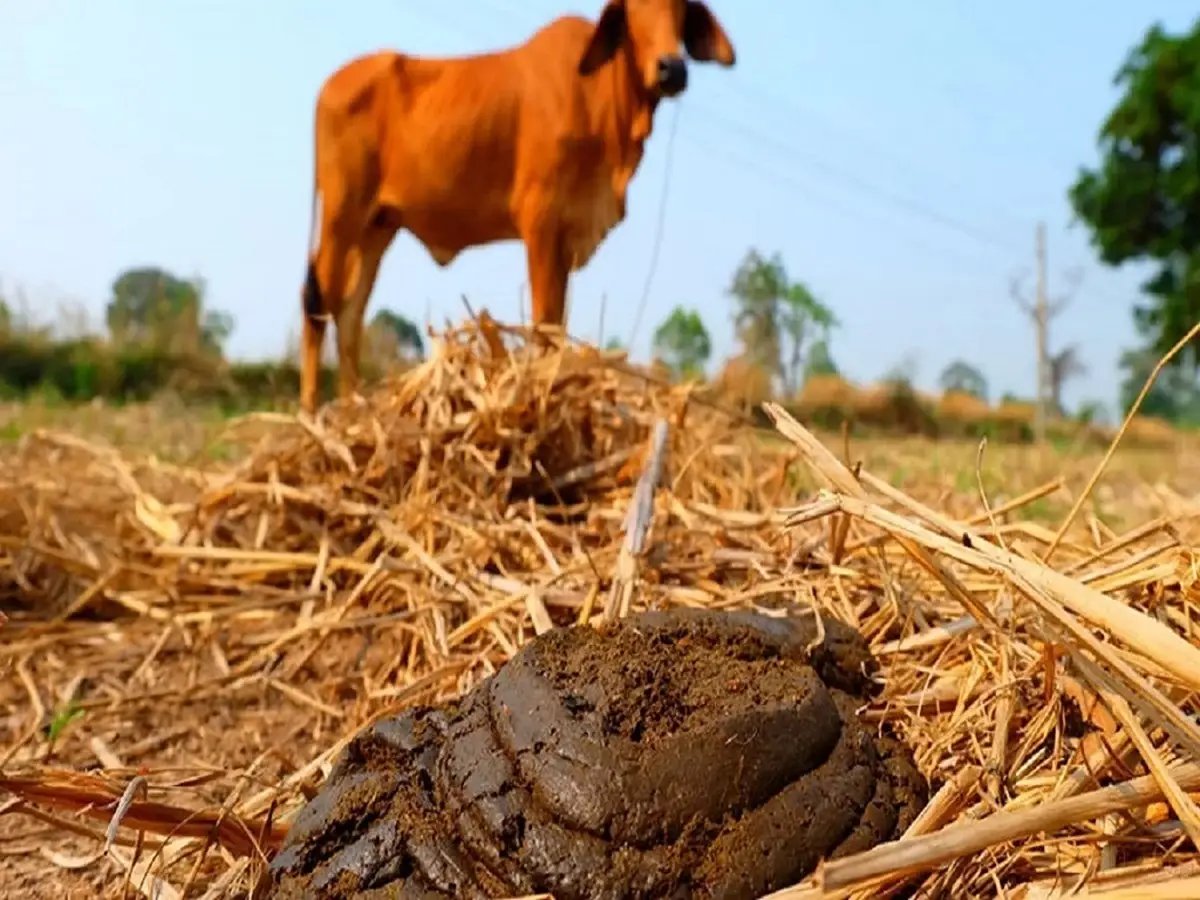

Eco-Friendly Gardening
How Long To Compost Cow Manure
Modified: January 22, 2024
Learn how long it takes to compost cow manure for eco-friendly gardening. Discover the benefits and tips for using this organic fertilizer.
(Many of the links in this article redirect to a specific reviewed product. Your purchase of these products through affiliate links helps to generate commission for Chicagolandgardening.com, at no extra cost. Learn more)
Table of Contents
Introduction
Composting cow manure is not only an effective way to manage waste, but it also offers numerous benefits for eco-friendly gardening. If you are someone who is passionate about sustainable gardening practices and wants to minimize the use of chemical fertilizers, composting cow manure is the way to go.
Composting is a natural process that breaks down organic materials, such as cow manure, into nutrient-rich compost. This rich compost can then be used to improve soil fertility, enhance plant growth, and reduce the need for synthetic fertilizers. The process of composting also helps to reduce methane emissions from manure while providing a valuable resource for gardeners.
Not only does composting cow manure help in recycling organic waste, but it also helps to enrich the soil with essential nutrients. As cow manure decomposes, it releases nitrogen, phosphorus, and potassium – the key nutrients that plants need for healthy growth. These nutrients, along with the organic matter in the compost, improve soil structure, water retention, and microbial activity.
Composting cow manure is a sustainable practice that promotes a healthier environment by reducing landfill waste and chemical runoff. By composting cow manure, you are actively participating in the cycle of nature and creating a positive impact on the ecosystem.
In the following sections, we will explore the benefits of composting cow manure, factors affecting composting time, proper techniques for composting, and how to use composted cow manure in your garden. Additionally, we will provide tips for speeding up the composting process and common mistakes to avoid. So, let’s dive in and discover the wonders of composting cow manure in an eco-friendly garden.
Benefits of Composting Cow Manure
Composting cow manure offers a wide range of benefits for both the garden and the environment. Let’s explore some of the key advantages:
- Nutrient-Rich Soil Amendment: Composted cow manure is a fantastic organic fertilizer that enriches the soil with essential nutrients. It provides a balanced blend of nitrogen, phosphorus, and potassium, known as NPK, which are crucial for plant growth and development.
- Improved Soil Structure: Cow manure compost has the ability to enhance soil structure by improving its moisture holding capacity, drainage, and aeration. This allows plant roots to penetrate the soil more easily and access the necessary nutrients and water.
- Enhanced Soil Microbial Activity: The organic matter in composted cow manure promotes beneficial microbial activity in the soil. These microorganisms break down organic matter further, releasing even more nutrients and creating a healthy soil ecosystem.
- Reduced Need for Chemical Fertilizers: By using composted cow manure, you can significantly reduce your reliance on synthetic fertilizers. This helps to minimize the environmental impact of chemical runoff and reduces the risk of water pollution.
- Supports Sustainable Agriculture: Composting cow manure is a sustainable practice that closes the loop in food production. By recycling agricultural waste, such as cow manure, we can reduce landfill waste and contribute to a circular economy.
- Cost-Effective Solution: Composting cow manure is a cost-effective way to improve soil fertility. Instead of purchasing expensive chemical fertilizers, you can make use of a free and abundant resource that is readily available on many farms.
- Eco-Friendly Waste Management: Properly composting cow manure helps to manage waste in an eco-friendly manner. It reduces the amount of organic waste that ends up in landfills, where it would contribute to greenhouse gas emissions. Additionally, composting can help to reduce odors and flies associated with raw manure.
As you can see, composting cow manure holds significant benefits for gardeners and the environment. It provides a sustainable way to improve soil fertility, support plant growth, and minimize the use of chemical fertilizers. By incorporating composted cow manure into your gardening practices, you are taking a positive step towards creating a healthier and more sustainable garden ecosystem.
Factors Affecting Composting Time
The time it takes for cow manure to fully compost depends on various factors. While some of these factors are within your control, others are influenced by the natural decomposition process. Let’s explore the key factors that affect composting time:
- C/N Ratio: The carbon-to-nitrogen ratio (C/N) is a critical factor in composting. For optimal decomposition, the C/N ratio should be balanced, typically around 25-30:1. Cow manure is considered a high carbon material, so it is advisable to mix it with nitrogen-rich materials, such as grass clippings or kitchen scraps, to achieve the desired ratio.
- Particle Size: The size of the cow manure particles can also impact composting time. Finely shredded or chopped manure will compost faster compared to large chunks. Smaller particles provide a larger surface area for microbes to break down the material more efficiently.
- Aeration: Oxygen is essential for the aerobic decomposition process. Proper aeration allows beneficial bacteria and other organisms to thrive, speeding up the composting process. Ensure the compost pile has adequate airflow by turning or aerating it regularly.
- Moisture Content: Composting microorganisms require moisture to survive and carry out their work. The ideal moisture content for composting cow manure is around 50-60%. Too much moisture can lead to anaerobic conditions, while insufficient moisture may slow down decomposition. Regularly monitor the moisture level and adjust by adding water or turning the pile if needed.
- Temperature: The internal temperature of the compost pile plays a crucial role in the decomposition process. Ideal temperatures range between 120-160°F (49-71°C). Higher temperatures facilitate faster decomposition and help to kill weed seeds and pathogens. Use a compost thermometer to monitor temperature and adjust if necessary by adding more bulky materials or turning the pile.
- Compost Pile Size: The size of the compost pile can impact the composting time. Larger piles tend to heat up faster and maintain higher temperatures due to better insulation. Smaller piles may take longer to break down but can be more manageable for home gardeners.
- Turning and Mixing: Regularly turning or mixing the compost pile helps to distribute heat, oxygen, moisture, and microorganisms evenly. This ensures that all parts of the pile decompose at a similar rate. Aim to turn the pile every 1-2 weeks.
It’s important to note that composting cow manure is a natural process influenced by various factors. While you can control some aspects, such as the C/N ratio, aeration, and moisture content, other factors like temperature and time are determined by the composting organisms and environmental conditions. Patience and proper management are key to successful composting.
Now that we understand the factors affecting composting time, let’s explore the proper techniques for composting cow manure to ensure efficient decomposition.
Proper Techniques for Composting Cow Manure
Composting cow manure requires proper techniques to ensure successful decomposition and create high-quality compost. Here are some guidelines for composting cow manure:
- Collecting Cow Manure: Start by collecting fresh cow manure from well-kept and healthy animals. Avoid using manure from cows that have been recently treated with antibiotics or other medications, as it may negatively impact the composting process.
- Mixing with Carbon-Rich Materials: Cow manure is considered a high nitrogen material. To achieve the optimal C/N ratio, mix the manure with carbon-rich materials such as dried leaves, straw, or wood chips. Aim for a ratio of approximately 3 parts manure to 1 part carbon-rich material.
- Layering: Layer the cow manure and carbon-rich materials in a compost bin or create a compost pile. Start with a layer of carbon-rich material, followed by a layer of cow manure, and continue alternating until all the materials are used. This helps to promote proper aeration and prevents odors.
- Moisture Management: Ensure the compost pile has adequate moisture content of around 50-60%. If the pile feels dry, sprinkle water to moisten it. Conversely, if it feels too wet, add more dry carbon-rich materials to absorb excess moisture.
- Aeration: Regularly turn or mix the compost pile to provide oxygen to the microorganisms and ensure even decomposition. Use a garden fork or compost turning tool to gently turn the pile every 1-2 weeks. This helps to maintain aerobic conditions and accelerates the composting process.
- Temperature Monitoring: Use a compost thermometer to monitor the internal temperature of the pile. Aim for temperatures between 120-160°F (49-71°C) to promote efficient decomposition. If the temperature drops below this range, consider adding more nitrogen-rich materials or turning the pile to reactivate the composting process.
- Patience and Time: Composting cow manure takes time and patience. Depending on various factors, it can take anywhere from a few months to a year for the compost to fully mature. Be consistent in managing and maintaining the compost pile, and trust the natural decomposition process.
- Screening the Compost: Once the compost has fully decomposed and matured, you can screen it to remove any larger materials that are not fully broken down. This will result in a finer and more uniform compost that is easier to spread in the garden.
By following these proper composting techniques, you can successfully turn cow manure into nutrient-rich compost and harness its benefits for your garden. The key pillars are achieving the right carbon-to-nitrogen ratio, managing moisture and aeration, regular turning, and allowing sufficient time for the composting process to work its magic.
Now that we have covered the techniques for composting cow manure, let’s explore the expected composting time for cow manure.
Composting Time for Cow Manure
The amount of time it takes for cow manure to fully compost can vary depending on several factors. These factors include the composting techniques used, environmental conditions, and the specific characteristics of the cow manure itself. Generally, it takes anywhere from a few months to a year for cow manure to compost completely.
Composting is a natural process that involves the breakdown of organic materials by microorganisms such as bacteria, fungi, and worms. These microorganisms feed on the nitrogen-rich cow manure, breaking it down into simpler compounds and transforming it into nutrient-rich compost.
While composting time can vary, there are a few key factors that can influence the speed of the process:
- Proper C/N Ratio: Achieving the right carbon-to-nitrogen (C/N) ratio is crucial in composting cow manure. A well-balanced C/N ratio of around 25-30:1 ensures efficient decomposition. If the ratio is too high in carbon, decomposition may be slower. Mixing the cow manure with carbon-rich materials such as leaves or straw can help achieve the desired balance.
- Aeration and Moisture: Adequate aeration and moisture are essential for the composting process. Turning or mixing the compost pile regularly promotes aeration, providing oxygen necessary for microorganisms to thrive. Moisture levels should be maintained around 50-60%. Too much moisture can lead to anaerobic conditions, while insufficient moisture can slow down decomposition.
- Temperature: Composting generates heat, and maintaining the right temperature is important for efficient decomposition. The ideal temperature range for composting cow manure is between 120-160°F (49-71°C). Higher temperatures help kill weed seeds and pathogens while accelerating the breakdown of organic material. Monitoring the temperature and ensuring it stays in the optimal range can speed up the composting process.
- Particle Size: The size of the cow manure particles can also impact composting time. Finely shredded or chopped manure decomposes faster compared to larger chunks. Smaller particle sizes provide a larger surface area for microorganisms to break down the material more efficiently.
It’s important to be patient during the composting process, as it takes time for the microorganisms to break down the cow manure completely. Regularly monitor the compost pile, turning it every 1-2 weeks to ensure even decomposition and proper aeration. As the composting process progresses, you will notice changes in appearance and texture, and the compost will develop a rich earthy smell.
Remember, each composting journey is unique, and the specific composting time for cow manure can vary based on the factors mentioned above. It’s essential to stay consistent with the composting techniques and allow sufficient time for the compost to mature. Once the cow manure has decomposed into a dark, crumbly, and earthy compost, it’s ready to be used in your garden.
Now that we understand the composting time for cow manure, let’s explore some tips for speeding up the composting process.
Tips for Speeding up the Composting Process
If you’re eager to see quick results with composting cow manure, there are several tips and techniques you can employ to expedite the decomposition process. While composting does require a certain amount of time, these strategies can help speed up the process:
- Shred or Chop the Manure: Breaking down cow manure into smaller pieces increases the surface area available for microorganisms to work on. Shredding or chopping the manure into smaller particles will accelerate the decomposition process.
- Properly Balance the C/N Ratio: Ensuring the right carbon-to-nitrogen (C/N) ratio is critical for efficient decomposition. Add carbon-rich materials, such as dry leaves, straw, or wood chips, to balance the high nitrogen content of the cow manure. This will provide a favorable environment for microorganisms and speed up decomposition.
- Alternate Layers: Layering cow manure with carbon-rich materials creates a balanced environment for decomposition. Alternate layers of cow manure and carbon-rich materials to improve aeration and ensure even distribution of nutrients and microorganisms throughout the compost pile.
- Manage Moisture Levels: Consistent moisture levels are crucial for the composting process. Keep the compost pile moist, similar to a wrung-out sponge. If the pile becomes too dry, add water. If it becomes too wet, incorporate additional carbon-rich materials to absorb excess moisture.
- Aerate Regularly: Aerating the compost pile introduces oxygen and promotes the growth of aerobic microorganisms, which decompose the organic matter more quickly. Regularly turn or mix the compost pile every 1-2 weeks to ensure proper aeration and even decomposition.
- Increase Surface Area: Breaking up larger pieces of cow manure or using a pitchfork to create air shafts within the pile will increase the surface area available for microorganisms to work on. This helps to speed up the composting process.
- Add Compost Activators: Compost activators are commercially available products that introduce beneficial microorganisms to the compost pile. These microorganisms speed up the decomposition process by providing a boost of organic matter degraders.
- Monitor Temperature: Maintain an optimal temperature range of 120-160°F (49-71°C) to accelerate decomposition. If the compost pile is not heating up to the desired temperature, consider adding nitrogen-rich materials or turning the pile more frequently to promote heat generation.
- Avoid Large, Bulky Materials: Large or bulky materials, such as branches or logs, can slow down the composting process. Ensure that materials added to the compost pile are small enough to break down easily and facilitate faster decomposition.
By employing these tips, you can speed up the composting process and achieve faster results with your cow manure. However, it’s essential to keep in mind that composting is a natural process that still requires time and patience. Monitoring the compost pile, adjusting moisture levels, and consistent aeration are key factors in achieving a faster breakdown of cow manure into nutrient-rich compost.
Now that we have explored the tips for speeding up the composting process, let’s discuss some common mistakes to avoid when composting cow manure.
Common Mistakes to Avoid
Composting cow manure is a straightforward process, but there are several common mistakes that can hinder the efficiency and success of the composting process. By being aware of these mistakes, you can avoid them and ensure the best possible results:
- Using Fresh Manure: Applying fresh cow manure directly to the garden without composting it first can burn plants and introduce weed seeds and pathogens. Always compost the manure before using it as a fertilizer.
- Imbalanced C/N Ratio: Failing to achieve the right carbon-to-nitrogen (C/N) ratio can slow down decomposition. Ensure a balanced mixture of cow manure and carbon-rich materials to provide the optimal environment for microorganisms to thrive.
- Insufficient Aeration: Inadequate aeration can lead to anaerobic conditions, resulting in a slow decomposition process and unpleasant odors. Regularly turn or mix the compost pile to promote oxygen flow and ensure proper aeration.
- Overly Wet or Dry Pile: Excessive moisture can lead to a smelly, slimy pile, while a dry pile will decompose slowly. Maintain the right moisture level by regularly monitoring and adjusting as needed.
- Adding Invasive Weeds: Avoid adding weeds that have gone to seed to the compost pile, as they may survive the composting process and reintroduce themselves when applied in the garden.
- Using Diseased Plant Material: Including diseased plant material in the compost pile can potentially spread diseases to healthy plants. Dispose of infected plants separately or in a municipal green waste program to prevent the spread of diseases.
- Adding Meat or Dairy Products: Cow manure should be composted with plant-based materials only. Avoid adding meat, dairy, or oily products, as they can attract pests and may not decompose properly.
- Ignoring Temperature: Improper temperature management can hinder the composting process. Ensure that the compost pile reaches and maintains the proper temperature range of 120-160°F (49-71°C) for efficient decomposition.
- Using Plastic or Synthetic Materials: Non-biodegradable materials such as plastic, synthetic fabrics, or treated wood should not be included in the compost pile. These materials will not break down and can contaminate the compost.
- Adding Too Many Bulky Materials: Including large branches or logs can slow down decomposition. Cut larger materials into smaller pieces or avoid adding them altogether to ensure more efficient breakdown.
By avoiding these common mistakes, you can ensure a smoother and more successful composting process for your cow manure. Composting takes time and attention, so it’s essential to be mindful of these potential pitfalls to achieve the best results.
Now that we are aware of the common mistakes to avoid, let’s explore how we can put the composted cow manure to good use in the garden.
Using Composted Cow Manure in the Garden
Composted cow manure is a valuable resource for enhancing soil fertility and promoting healthy plant growth in the garden. Once the composting process is complete, you can use the finished product in various ways to maximize its benefits:
- Soil Amendment: Incorporate composted cow manure into the soil before planting to improve its structure, water retention, and nutrient content. Mix the compost into the top few inches of soil to provide essential organic matter for plant roots to thrive.
- Top Dressing: Apply a layer of composted cow manure as a top dressing around existing plants. This helps to slowly release nutrients into the soil and provides a beneficial organic mulch that suppresses weeds and conserves moisture.
- Potting Mix: Mix composted cow manure with other growing media, such as potting soil or coconut coir, to create a nutrient-rich blend for potted plants. This will provide a healthy environment for roots to grow and thrive.
- Seed Starting: Use composted cow manure as a component of seed starting mixes to promote healthy germination and seedling growth. It provides a rich source of nutrients and microbial activity that supports early seedling development.
- Compost Tea: Create compost tea by steeping composted cow manure in water. Use the resulting liquid as a foliar spray or soil drench to provide a nutrient boost to plants. Dilute the compost tea with water before application.
- Planting Bed Preparation: Prior to planting in a new garden bed or raised bed, incorporate composted cow manure throughout the entire area. This ensures that the soil receives a consistent boost of nutrients, organic matter, and beneficial microorganisms.
- Vegetable Gardens: Vegetables benefit greatly from the nutrients provided by composted cow manure. Apply it generously to vegetable garden beds to enhance soil fertility and productivity. Avoid direct contact of fresh manure with growing parts of edible plants.
- Perennials and Flower Gardens: Use composted cow manure as a soil amendment for perennials and flower beds. It improves soil health, enhances moisture retention, and supports vigorous growth and vibrant blooms.
- Organic Lawn Care: Spread a thin layer of composted cow manure over the lawn to enrich the soil, promote healthy grass growth, and improve its ability to withstand environmental stresses.
When using composted cow manure in the garden, it’s essential to be mindful of its potency. While it is a valuable organic fertilizer, it should be used in moderation to prevent nutrient imbalances or excessive growth. Start with small amounts and gradually increase as necessary, taking into account the specific needs of your plants and the recommendations for each application.
Remember, composted cow manure is an eco-friendly alternative to synthetic fertilizers, providing a sustainable and nutrient-rich solution for your garden. By incorporating it into your gardening practices, you are not only improving your plants’ health but also contributing to a healthier and more sustainable environment.
Now that we have explored the various ways to use composted cow manure in the garden, it’s time to wrap up our journey towards eco-friendly gardening.
Conclusion
Composting cow manure is a fantastic way to practice eco-friendly gardening while reaping a multitude of benefits. By harnessing the power of natural decomposition, you can transform cow manure into nutrient-rich compost that improves soil fertility, enhances plant growth, and reduces the need for synthetic fertilizers.
Throughout this journey, we have explored the many advantages of composting cow manure, including its ability to enrich the soil, support sustainable agriculture, and reduce waste. We have also learned about the factors that affect composting time, the proper techniques for composting, and tips for speeding up the process. Additionally, we discussed common mistakes to avoid and how to utilize the finished compost in the garden.
Composting cow manure is not only beneficial for your garden but also for the environment. It reduces waste, minimizes the use of chemical fertilizers, and promotes a circular economy by recycling organic materials. By adopting these eco-friendly gardening practices, you are contributing to a greener and more sustainable future.
Remember to be patient and consistent in your composting efforts. Composting is a natural process that takes time, but with proper management and the right techniques, you can accelerate the decomposition process. Regularly monitor the compost pile, maintain proper moisture levels, provide adequate aeration, and adjust as needed to create the ideal conditions for microorganisms to do their work.
As you incorporate composted cow manure into your garden, you will see the benefits unfold. Healthier plants, improved soil structure, and a more vibrant garden ecosystem await you. Enjoy the satisfaction of knowing that you are making a positive impact on the environment and nurturing your garden while practicing sustainable gardening methods.
So, let’s continue on our journey of eco-friendly gardening, embracing the power of composted cow manure to create a flourishing and sustainable garden for generations to come.
